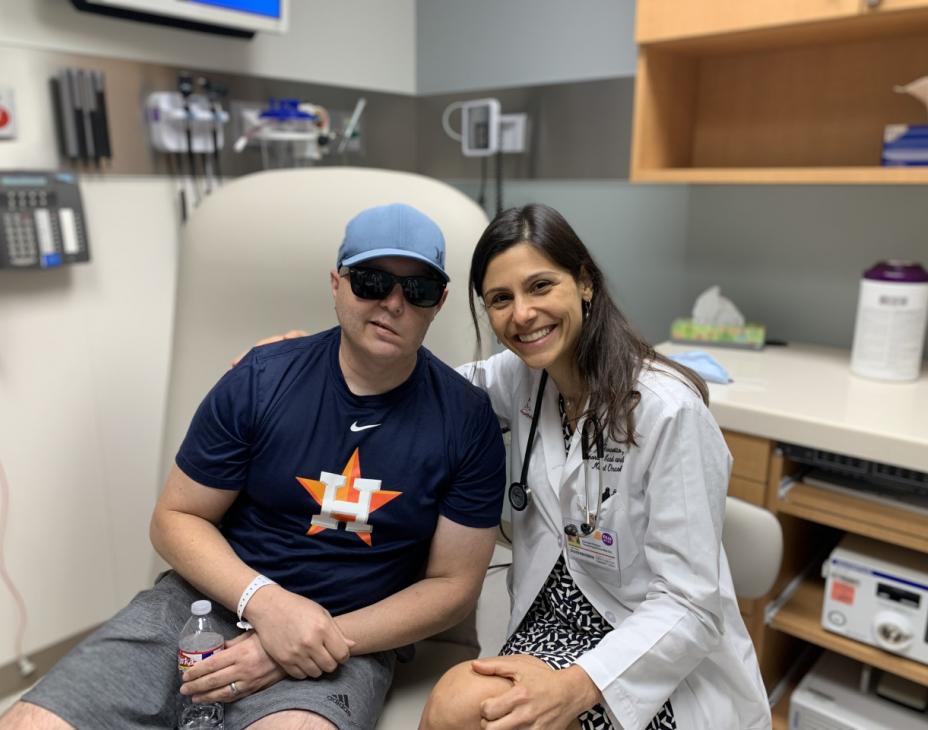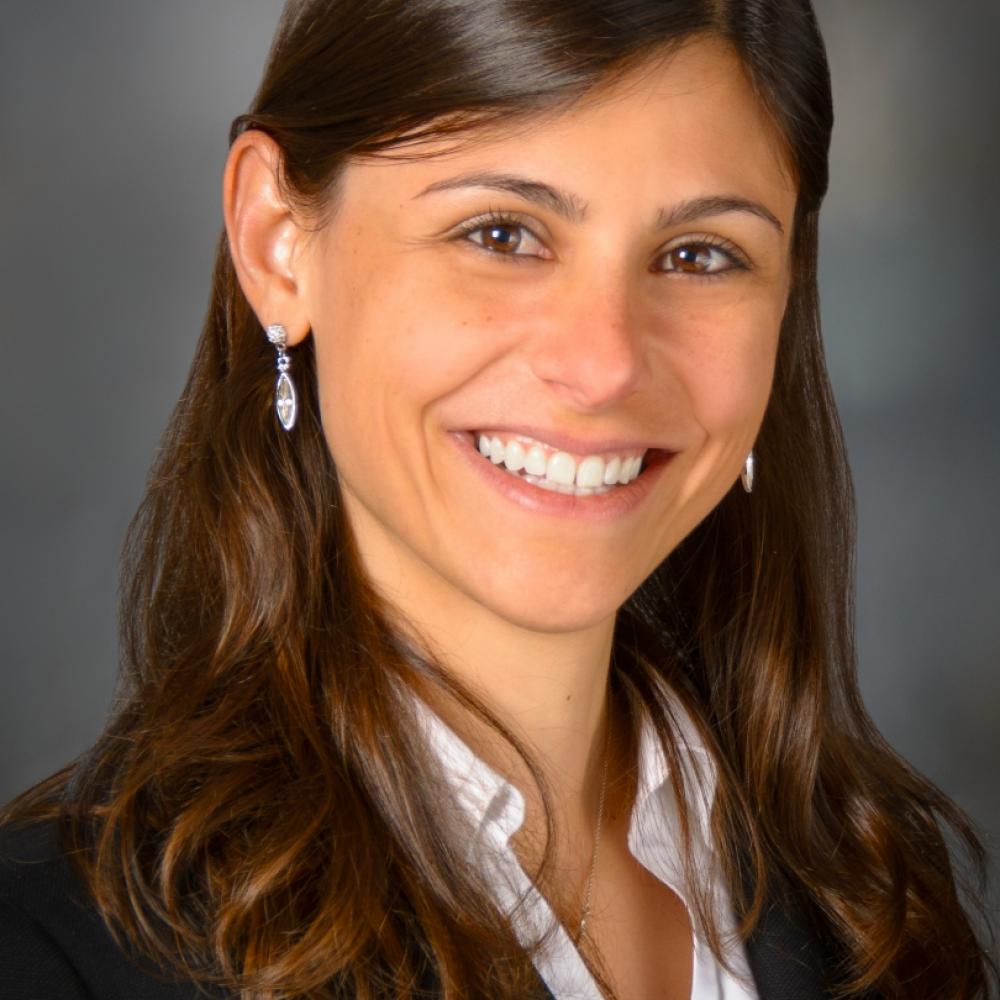These researchers have dedicated their careers to finding new treatments and cures for people with cancer.

Targeting ACC with treatments that shut off NOTCH1 – a cancer-causing gene – is showing promise for patients with ACC, a rare and aggressive head and neck cancer. Risk factors for ACC remain unknown. There is no standard care for this cancer, and interventions like chemotherapy, targeted approaches, and immunotherapy have minimal benefit for patients. Despite intense and invasive treatments, many patients develop metastatic disease. Those whose ACC tumors were activated by the NOTCH1 gene have worse prognoses compared to other patients with ACC, making this niche area of research so vital.
Better understanding the biology of NOTCH1-activated pathways, working to validate NOTCH1 mutations as therapeutic targets, and testing the efficacy of NOTCH1 inhibitors may continue improving outcomes. Dr. Ferrarotto, of The University of Texas MD Anderson Cancer Center, focuses her research on developing and measuring the effectiveness of novel drugs that inactivate NOTCH1. She examines the overactivity of mutated NOTCH1 pathways in samples of patient tissue. These strategies help her build new treatments and clinical trials to target this tumor-expanding culprit.
“[There is] limited knowledge about the biology of rare cancers and a lack of evidence to guide their treatment,” says Dr. Ferrarotto. “I have made it my mission to understand the biology of rare head and neck cancers and propose clinical trials with rational therapies for patients with these rare diseases.”
Research Reveals Therapeutic Implications
Using support from a Conquer Cancer grant, Dr. Ferrarotto and her team performed RNA and DNA sequencing and other techniques to evaluate the NOTCH1-mutated pathways in 54 patients with ACC. This initial work revealed there are multiple forms of ACC, each with vital differences in disease biology and prognostic outlook. Dr. Ferrarotto verified that patients with NOTCH1-mutant ACC have more hostile disease, are more likely to develop metastases, and generally face worse outcomes.
“Unbiased clustering of ACCs by RNA and protein expression revealed two distinct subtypes: ACC-I and ACC-II,” says Dr. Ferrarotto. “ACC-I is enriched with NOTCH1-activating mutations, exhibits MYC overexpression, and is associated with a dismal prognosis, while ACC-II exhibits upregulation of TP63 and receptor tyrosine kinases and is associated with better survival outcomes.”
Drawing on this work, Dr. Ferrarotto collaborated with the Adenoid Cystic Carcinoma Research Foundation (ACCRF) and Ayala Pharmaceuticals (Ayala) to craft and test the novel NOTCH1 inhibitor AL101 in mouse models. They used AL101 samples stained with ACC and found affirming evidence that warrants further research.
“We observed significant tumor growth inhibition in mice with NOTCH1-activated ACC tumors but not in mice harboring tumors without evidence of NOTCH1 pathway activation. Those experiments validated NOTCH1 as a therapeutic target in ACC with NOTCH1-activating mutation,” says Dr. Ferrarotto. “We also conducted studies with combinatorial therapies and identified promising combinations (e.g. AL101 plus BCL2 inhibitors) that merit clinical investigation.”
Translating Treatment into Trials
Such pivotal milestones from Dr. Ferrarotto’s CDA-supported research provided the rationale to move NOTCH1 inhibitors from lab to clinic. Dr. Ferrarotto worked with Ayala to launch the first-ever multicenter, international, molecularly driven phase II study (ACCURACY) of a NOTCH1-targeting drug (AL101) in patients with ACC. The trial began in December 2018 and enrolled 82 patients by April 2021.
“In this trial, I treated 18 patients with very aggressive, metastatic ACC, and it was really rewarding to see how the drug helped some of the patients,” says Dr. Ferrarotto. “Final results will be reported soon.”
One highlight Dr. Ferrarotto can share from the ACCURACY trial is that it helped extend the life and improve the quality of life of one of her late patients. The patient was a young nurse, diagnosed with NOTCH1-mutant metastatic ACC at 26 years old.
“The NOTCH1 inhibitor led to tumor shrinkage and held her disease at bay for approximately 1 year, providing her quality time with her supportive husband,” says Dr. Ferrarotto.
When this patient passed away, her husband sent Dr. Ferrarotto a video of the patient expressing her appreciation for Dr. Ferrarotto’s warm, affirming, and informed approach to care. Such meaningful moments motivate Dr. Ferrarotto in her work toward better treatments and outcomes for patients.
“My patient shared how much she valued my advocacy, support, and evidence-based rationale for treatment decisions. Although it is always devastating to lose a patient, her inspirational words came as a reminder that I have a challenging and important mission ahead of me,” says Dr. Ferrarotto.
Beyond the ACCURACY study, additional trials are focusing on different subgroups of patients with ACC by testing other NOTCH1 inhibitors like CB-103. Results from this ongoing work, paired with Dr. Ferrarotto’s donor-supported breakthroughs, are helping oncologists fill gaps in ACC care.
“What we have learned from these trials to date is that NOTCH1 inhibitors benefit a modest proportion of ACC patients with NOTCH1-activating mutations. Combinatorial therapies will most likely be needed to address intrinsic and acquired mechanisms of resistance to NOTCH1 inhibitors and will likely increase the number of patients who can benefit from NOTCH1 inhibitors,” says Dr. Ferrarotto. “We are planning future biomarker-driven clinical trials for specific ACC patient subgroups defined on the basis of our growing understanding of ACC biology.”
Expanding on Promising Progress
Next steps in Dr. Ferrarotto’s research include completing analysis for her recent trial pairing axitinib and avelumab, two promising treatments for patients with metastatic ACC. She shared results from this study at the 2022 ASCO Annual Meeting. She is also working on a Department of Defense–funded project and two pilot studies funded by the ACCRF.
“I’m aiming to explore the immune microenvironment of ACC using imaging mass cytometry and study the natural history of lung metastasis in patients with ACC,” says Dr. Ferrarotto. “I am confident that through research and collaboration, we will see substantial advances in the near future for patients with rare head and neck cancers.”
